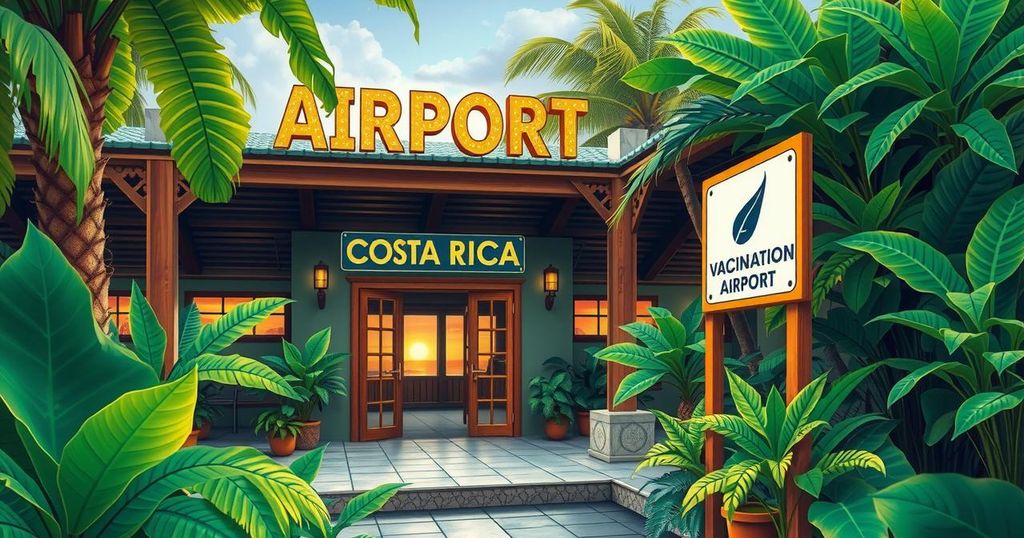A Peruvian tourist was denied exit from Costa Rica for lacking a yellow fever vaccination, highlighting strict entry rules. Minister Munive emphasized that those wishing to leave the airport must comply with vaccination requirements. A similar incident involved a Paraguayan senior citizen. The situation has escalated concerns over a yellow fever vaccine shortage, prompting calls for adjustments to the policy amid its effects on the tourism sector.
A Peruvian tourist was prevented from exiting Juan Santamaría International Airport in Costa Rica because he did not possess a yellow fever vaccination. Minister of Health Mary Munive provided clarification regarding the vaccination policy. Travelers in transit may remain in the airport without vaccination, but those wishing to leave must be vaccinated. The tourist was given an ultimatum—”Comply or stay”—and ultimately decided to remain in the airport.
In another instance, a Paraguayan citizen over 60 years old was denied entry to Costa Rica when attempting to attend the annual book fair, as he lacked the requisite vaccination certificate. Minister Munive highlighted that seniors in South America are frequently exempt from needing this vaccine and consequently do not obtain certificates. Consequently, this Paraguayan traveler faced delays due to the absence of proper documentation.
These occurrences have brought to light a nationwide shortage of yellow fever vaccinations in Costa Rica, exacerbated by global supply chain issues and increasing cases within the Americas. The Costa Rican Association of Travel Agencies (ACAV) and the National Chamber of Tourism (Canatur) have advocated for the temporary suspension of the vaccination decree until sufficient doses are available, warning that the current shortage endangers both travelers and Costa Rica’s $4 billion tourism sector.
In response to the rising concerns, the Ministry of Health initiated a border vaccination campaign along with a digital certificate system on March 11, 2025, although the complete resolution of these challenges remains elusive. Munive emphasized the need for adaptability as Costa Rica seeks to balance public health with tourism interests, highlighting the importance of clear communication and enhanced vaccine accessibility to mitigate future disruptions.
In summary, the strict enforcement of yellow fever vaccination requirements for travelers entering Costa Rica has led to significant barriers, including refusal of entry for some tourists, due to ongoing vaccine shortages. The Ministry of Health continues to navigate between safeguarding public health and maintaining a thriving tourism industry. The unfolding situation necessitates improved communication regarding vaccination requirements and enhanced access to vaccines to minimize the impact on tourism.
Original Source: ticotimes.net






